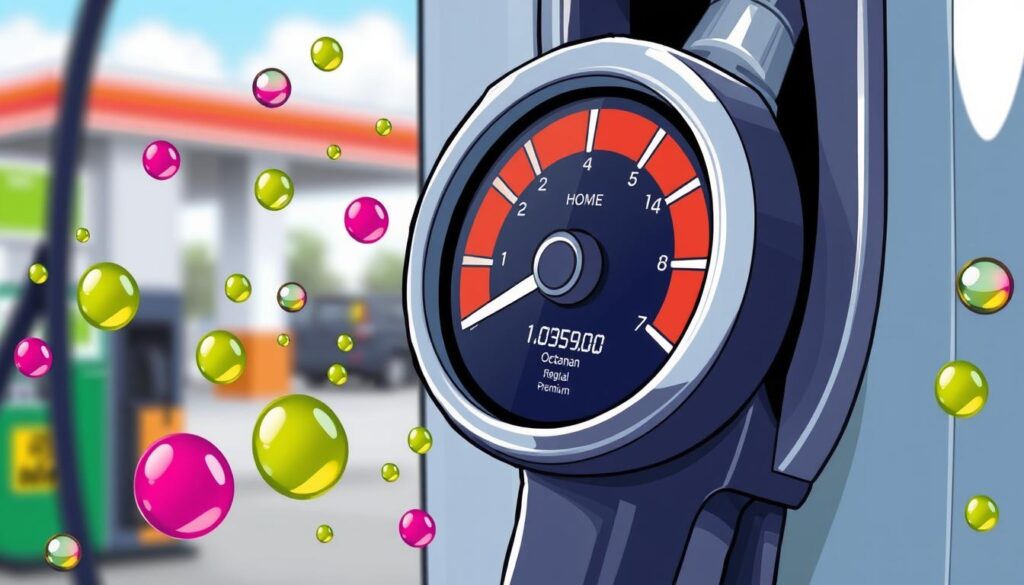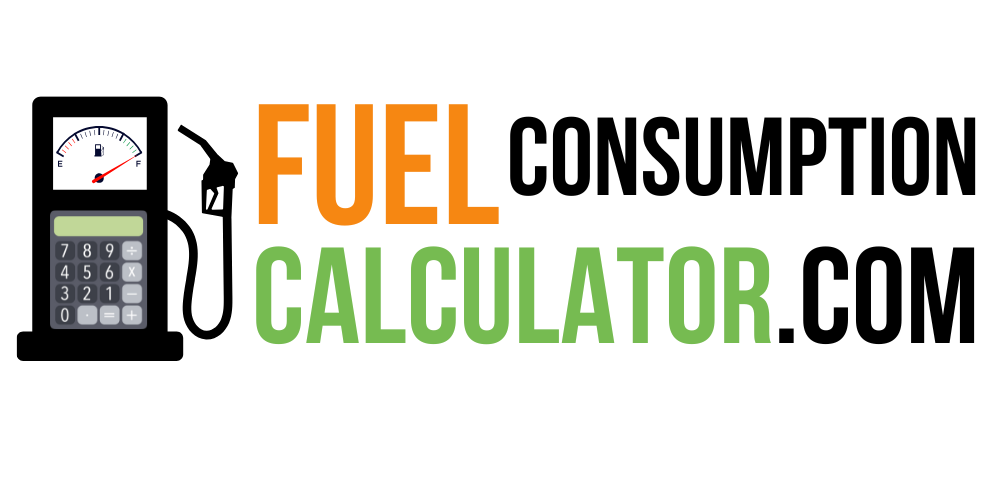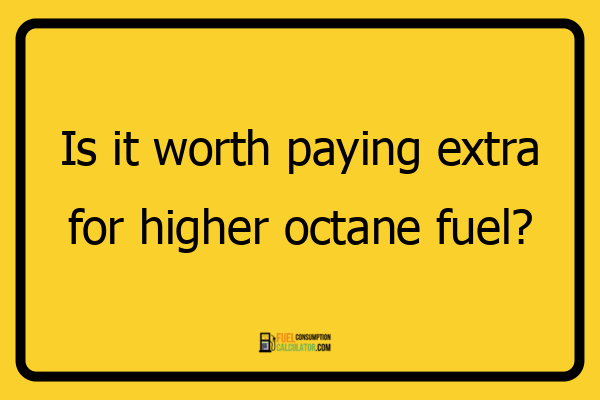Choosing between regular and premium gas can be tricky. Premium gas has a higher octane rating, making it suitable for high-performance engines. It’s believed to improve fuel efficiency and engine performance. Regular gas, with an octane rating of 87, is cheaper and used by most cars.
But, is the extra cost of premium gas worth it for your car? The answer depends on your car’s make, your driving habits, and your needs. Knowing the differences between regular and premium gas can help you pick the best fuel for your vehicle.
Contents
- 1 What Is Premium Gas and How Is It Different from Regular Gas?
- 2 Does Higher Octane Gas Last Longer or Improve Gas Mileage?
- 3 Is It Worth Paying Extra for Higher Octane Fuel?
- 4 What Happens If You Use the Wrong Fuel Type?
- 5 Cars That Require Premium Gas
- 6 Other Factors Affecting Fuel Efficiency
- 7 Source Links
Key Takeaways
- Premium gas is a 91-octane fuel designed for high-performance engines, while regular gas is an 87-octane fuel used by most vehicles.
- Premium gas can improve fuel efficiency and engine performance in vehicles designed to use it, but may not provide any benefits for cars made for regular gas.
- The decision to use premium or regular gas should be based on the manufacturer’s recommendations for your specific vehicle, as found in the owner’s manual.
- Using premium gas in a car designed for regular gas will not improve performance and will only lead to increased fuel expenses.
- Factors like driving habits, road conditions, and vehicle maintenance also play a role in determining fuel efficiency, beyond just the type of gas used.
What Is Premium Gas and How Is It Different from Regular Gas?
When you fill up your car, you might see different types of gasoline like regular, mid-grade, and premium. But what makes premium gas special, and is it worth paying more for it?
Understanding Octane Ratings
Octane ratings are key to understanding the difference between regular and premium gas. They show how well a fuel resists engine “knocking” or premature ignition. Regular gas has an octane rating of 87, while premium gas is between 91 to 94 octane.
Advantages of Premium Gas for High-Performance Engines
Cars with high-compression or turbocharged engines need premium gas to avoid engine damage. Premium fuel also has additives that keep the fuel system clean. But, using premium gas in a regular engine won’t improve performance or efficiency.
Branded gas from companies like Chevron, Shell, and Valero is often 30-70 cents more per gallon than generic gas. This can add $6-$14 to the cost of a 20-gallon tank. Yet, for owners of high-performance cars, premium gas might be a smart choice.
“Premium gasoline is primarily used by performance engines to help them reliably produce maximum power.”
Does Higher Octane Gas Last Longer or Improve Gas Mileage?
Many drivers wonder if premium gas is worth the extra cost. Does it make the gas last longer or improve gas mileage? The answer is a bit complex.
Gasoline comes in different octane levels, from 87 to 94. The Federal Trade Commission says using higher octane gas than your car needs doesn’t improve performance, speed, mileage, or cleanliness for most cars.
Using premium gas might make your engine run better, but it won’t mean you’ll visit the gas station less often. It can help fuel efficiency and performance in certain cars made for it. But, it doesn’t help cars meant for regular gas.
| Fuel Efficiency Factor | Impact |
|---|---|
| Correct Tire Pressure | Reduces extra energy required for movement, improving fuel economy |
| Driving Speed | Speeds above 50 mph can decrease gas efficiency in most vehicles |
| Use of Cruise Control | May enhance fuel economy on highways |
| Economy Air Conditioning | Can significantly impact fuel efficiency |
| Heavy Trunk Weight | Diminishes gas mileage, as extra weight increases fuel consumption |
| Idling | Turning off the engine during idling periods can save on fuel costs |
| Aggressive Driving | Leads to fuel wastage and quicker brake wear |
| Proper Maintenance | Essential for optimal fuel efficiency |
Premium gas might slightly improve fuel economy and performance for some cars. But for most cars, the difference is small. To get the most out of your gas, focus on good maintenance, driving habits, and other factors that affect fuel efficiency.

Is It Worth Paying Extra for Higher Octane Fuel?
Choosing the right fuel for your car can be hard. Regular, mid-grade, or premium gasoline each has its own price. Drivers often ask if paying more for higher octane fuel is worth it. The answer depends on your car’s engine and how you drive.
Factors to Consider When Choosing Fuel Grade
What your car needs is key when picking fuel. Most cars do well with regular unleaded gasoline (91 RON). But, some high-performance cars need a higher octane fuel to run smoothly.
When to Use Regular Gas vs. Premium Gas
- If your car’s manual says to use regular gas, don’t spend more on higher octane. It won’t improve performance and costs more.
- But, if your car needs premium fuel, it’s crucial to use it. Not using it can harm your engine, reduce power, and hurt fuel efficiency.
Choosing between regular and premium fuel depends on your car and how you drive. High-performance engines might benefit from premium fuel for better performance and efficiency. But, for most drivers, regular gasoline is the best choice for saving money and meeting their needs.
“Using the right fuel type for your engine is important, but in most cases, regular gas is perfectly suitable and the more cost-effective option.”
What Happens If You Use the Wrong Fuel Type?
Using the wrong fuel can really hurt your car’s performance and life. If you put regular gas in a car meant for premium, the engine might knock and lose power. This is because regular gas ignites too soon, which can harm the engine over time.
Consequences of Using Regular Gas in a Vehicle Requiring Premium
Putting regular gas in a premium fuel car can lead to problems:
- Fuel mismatch: Regular gas’s lower octane can cause engine knocking, which can damage the engine badly over time.
- Engine damage: Knocking and early ignition can wear down engine parts, cutting their life short and causing expensive fixes.
- Decreased vehicle performance: Regular gas makes the engine less powerful and less efficient, leading to slower acceleration, lower top speed, and worse driving.
- Compromised fuel recommendations: Wrong fuel type ignores the maker’s fuel advice, which is meant to keep the engine running well and lasting longer.
On the flip side, using premium gas in a regular fuel car won’t help and will cost more. Always use the fuel type your car’s manual says to for best performance and life.
| Fuel Type | Octane Rating | Recommended for |
|---|---|---|
| Regular Gasoline | 87 | Most standard vehicles |
| Midgrade Gasoline | 88-90 | Some higher-performance vehicles |
| Premium Gasoline | 91-93 | High-performance and luxury vehicles |

“Using the wrong fuel type can have serious consequences for your vehicle’s engine and performance. It’s crucial to always follow the manufacturer’s fuel recommendations to ensure optimal operation and longevity.”
Cars That Require Premium Gas
If you own a high-performance, luxury, or sports car, you might see the maker suggest premium gas with at least 91 octane. These cars are built to use premium fuel’s higher octane for more power and better efficiency.
Some cars that need premium gas are the Porsche 911, Acura TLX, Nissan Maxima, and Jeep Grand Cherokee. Using regular gas in these cars can lower their performance and might harm the engine over time.
These cars have high-compression engines. They work at higher compression ratios to make more power. But, they’re more likely to get “engine knock” or “pinging.” Premium fuel’s higher octane helps avoid this, letting the engine work well.
High-performance car owners should check the maker’s advice for the best fuel type. Premium gas costs more, but it’s key to keep your car’s engine running right and staying healthy.
“Using the recommended fuel grade is crucial for maximizing the performance and longevity of high-end vehicles.”
Other Factors Affecting Fuel Efficiency
Using the right fuel is key to a vehicle’s performance and efficiency. But, there are other things that matter too. Keeping tires at the right pressure, following the service schedule, and using the correct motor oil can all boost gas mileage.
Driving habits also play a big part. Avoiding harsh acceleration and braking, using cruise control, and not idling can help save fuel. These actions make a difference in how much gas you use.
The weight of your car and accessories like air conditioning also affect fuel use. By thinking about these factors, drivers can improve their fuel efficiency. A mix of choosing the right fuel, maintaining your car, and driving smart can help use less gas.
Keeping tires at the right pressure and following the service schedule are key. Driving in a fuel-efficient way also helps. By focusing on these areas, drivers can make their cars more efficient and cut down on fuel costs.
Source Links
- https://www.progressive.com/answers/premium-vs-regular-gas/ – Premium vs. Regular Gas: Which Is Best for Your Car?
- https://www.driverknowledgetests.com/resources/is-it-worth-paying-more-for-higher-octane-premium-fuel/ – Is it worth paying more for higher octane premium fuel?
- https://www.team-bhp.com/news/paying-extra-high-octane-fuel-worth-it-users-share-their-views – Is paying extra for high-octane fuel worth it? Users share their views | Team-BHP
- https://www.financialsamurai.com/branded-gas-or-high-octane-premium-gas-waste-of-money/ – Paying For Branded Gas Or High Octane Gas Is A Waste Of Money
- https://www.capitalone.com/cars/learn/managing-your-money-wisely/should-you-use-premium-gas-in-your-car/2063 – Should You Use Premium Gas in Your Car?
- https://www.cartalk.com/content/premium-vs-regular-0 – Premium vs. Regular
- https://www.firestonecompleteautocare.com/blog/driving/higher-grade-gas-and-fuel-economy/ – Does Higher Grade Gas Get Better Mileage?
- https://westechperformance.com/2022/08/12/the-huge-upside-of-filling-up-your-vehicle-with-premium-fuel/ – The Huge Upside of Filling Up Your Vehicle with Premium Fuel | Westech Performance Group
- https://www.motorama.com.au/blog/motoring-tips/benefits-premium-fuel – Benefits of Using Premium Fuel | Motorama
- https://carpart.com.au/blog/is-it-worth-paying-more-for-high-octane-fuel – Is It Worth Paying More For High Octane Fuel?
- https://www.fuelexpress.net/blog/general-information/what-happens-if-you-put-the-wrong-gas-in-your-car/ – What Happens If You Put the Wrong Gas in Your Car?
- https://www.bountifulmazda.com/blogs/1734/bountiful-mazda-dealer/mazda-gasoline-requirements/ – Do Mazda Vehicles Use Premium Gasoline? | Mazda Gas Requirements
- https://www.carpro.com/blog/do-you-really-need-premium-fuel – Do You Really Need To Use Premium Fuel?
- https://caradvise.com/the-simple-guide-to-regular-plus-and-premium-gas/ – The Simple Guide to Regular, Plus, and Premium Gas –
- https://www.enginebuildermag.com/2023/11/the-impact-of-fuel-type-on-engine-performance/ – The Impact of Fuel Type on Engine Performance – Engine Builder Magazine
- https://www.carsondemand.co.uk/post/paying-more-for-premium-fuel–does-it-really-make-a-difference – Paying More For Premium Fuel – Does It Really Make A Difference? | Cars On Demand

Hi, I’m Sufiyan, the developer behind this platform. I created FuelConsumptionCalculator.com to simplify fuel tracking for everyone — because understanding your vehicle shouldn’t require a degree in mechanics. I’m always working on adding more tools and content to make this site even more useful

